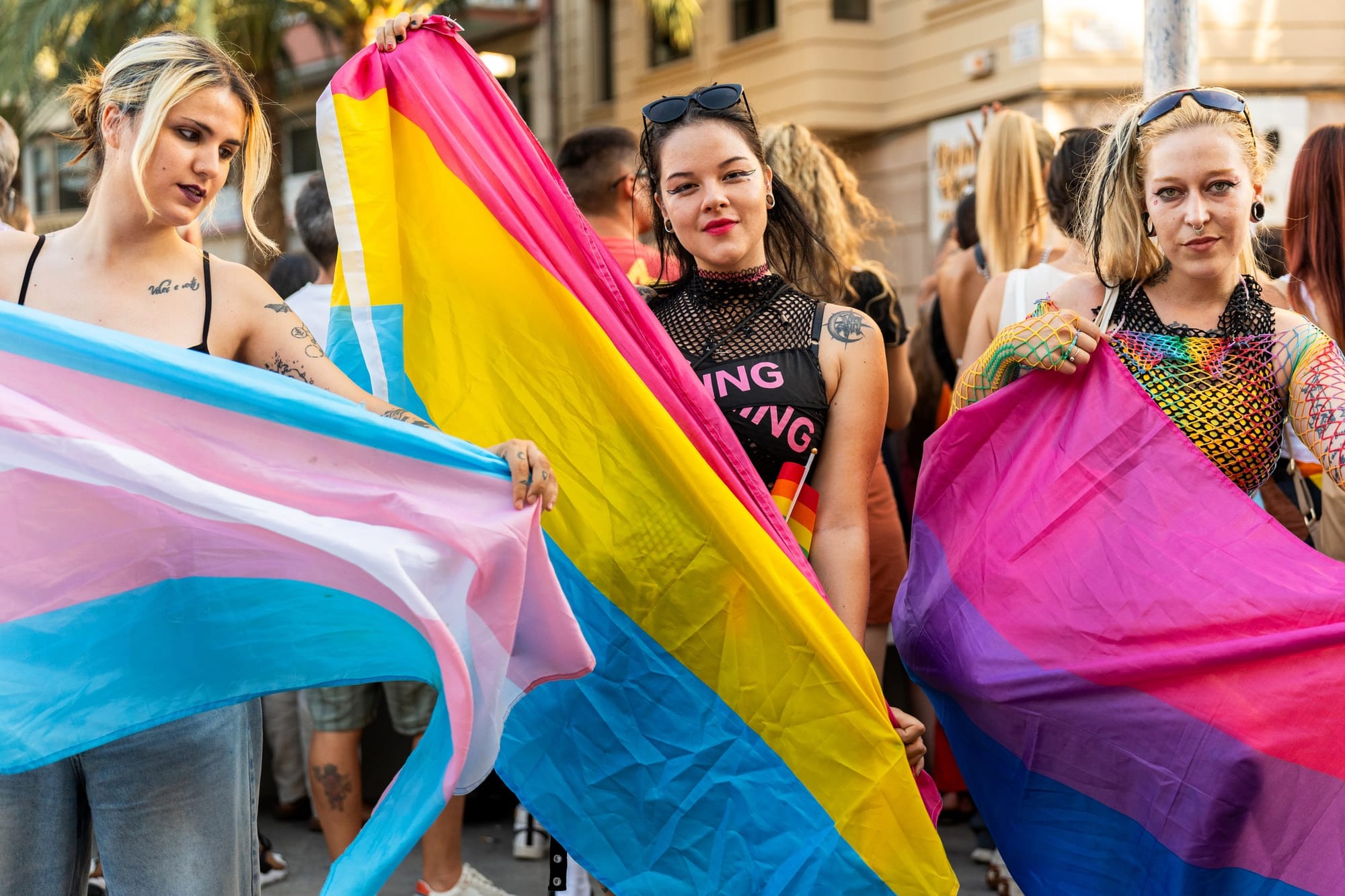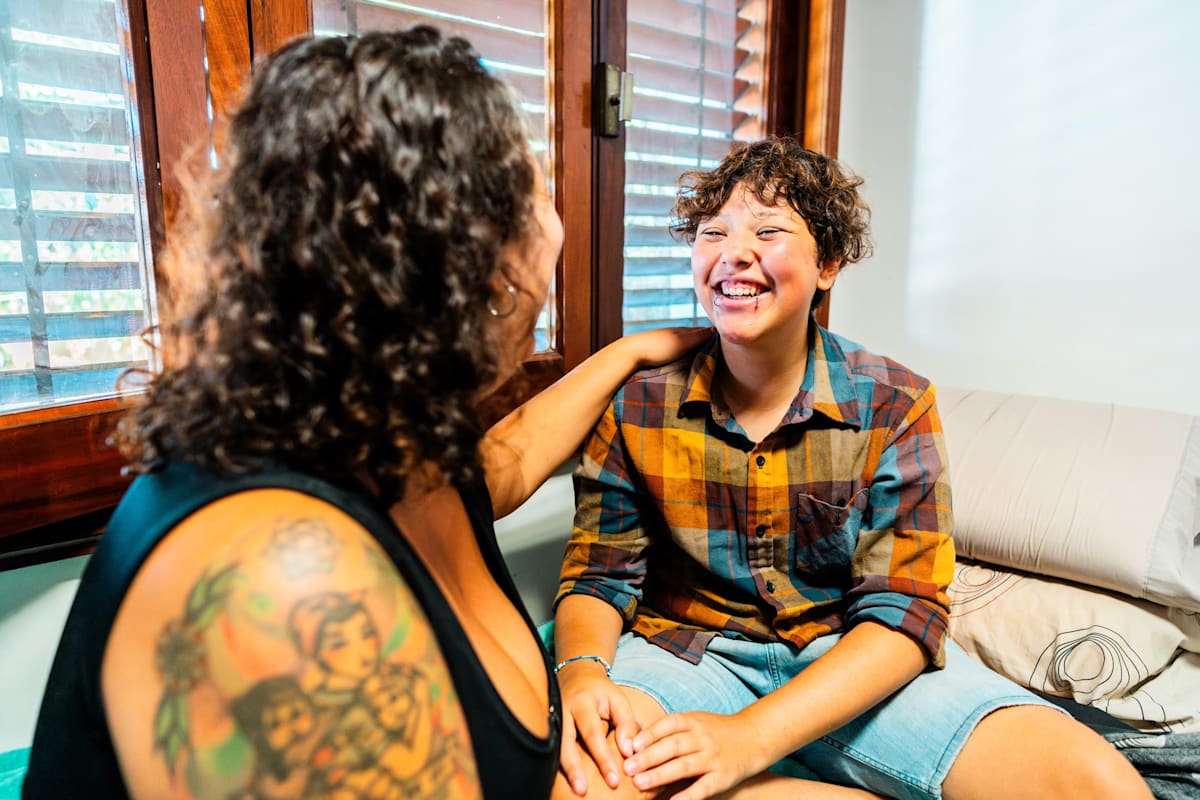
Unless you’ve been living under a rock, you’d be aware of the tsunami of anti-trans laws and policies that are being actively pursued in many parts of the world.
Donald Trump’s efforts to erase the very existence of trans people in the United States is attracting the most attention, but he is by no means the only one. Viktor Orbán, the Prime Minister of Hungary, and Russian President Vladimir Putin are similarly relentlessly persecuting trans people.
The rise of anti-trans threats in the US.
— The Observer (@ObserverUK) October 7, 2025
Since Donald Trump’s return to office, trans Americans are facing unprecedented legal and social threats - with some now seeking asylum abroad. But for those living in fear, the options for escape are limited.
Listen to today's… pic.twitter.com/pJ8IyAl7w2
This sharp increase in the cruel subjugation and oppression of trans people in several countries is causing stress and anxiety among the trans and gender-diverse community in Australia. Does a similar fate await them?
Fortunately, the evidence reveals that transphobic hate is unlikely to gain a significant foothold in Australia. This is, in part, because a high proportion of Australians have no appetite for trans hate and discrimination.
A poll, commissioned by Equality Australia in the first quarter of 2025, found that:
- 86% agree or strongly agree that government and opposition should not politicise trans issues for political gain
- 89% agree or strongly agree that LGBT people deserve to live with dignity and respect
- 91% agree or strongly agree that trans people should have the freedom and choice to live their lives in the way that makes them happy
- 81% agree of strongly agree that trans people deserve the same rights and protections as other Australians .
These numbers are heartening and, notably, show significantly higher support than the responses collected in 2020, when 78% of Australians agreed that trans people deserve the same rights and protections as other Australians (57% strongly agreeing).
Perhaps the increase in Australians supporting equal rights and freedoms for trans people is a result of increased efforts to raise awareness and acceptance of trans and gender-diverse people. Examples of this include an episode about being trans in the ABC series You Can't Ask That and the Victorian government’s powerful one-minute video, The Unsaid Says a Lot.
Australian Bureau of Statistics data from 2024 estimates that approximately 0.9% of Australians aged 16 years and over are trans or gender-diverse. This includes trans men, trans women and non-binary people, and equates to about 178,900 people.
Most of the attacks on trans people are directed at trans women who make up just 29.3% of this cohort (52,400 people) – barely enough people to fill even half the MCG!
Such a small and vulnerable minority cannot withstand the onslaught of transphobia on their own. They need allies – the 91% who agree that trans people should have the freedom and choice to live their lives in the way that makes them happy – to stand with them and raise their voices against the loud few who wrongly believe that trans women are predators and a threat to other women.
There are many small, yet effective ways for trans allies to help make Australia a country where all people enjoy equality and respect. Three simple actions allies can take are:
- Educate yourself: There’s a great deal of misinformation and disinformation about trans people, particularly online. It’s incumbent on each of us to educate ourselves about trans experiences and to do so using reliable resources.
- Speak up: Do not tolerate hurtful language, jokes or discrimination directed at trans people. Be visible and vocal in calling out hate and vilification.
- Use inclusive language: Language is powerful and is often weaponised when it comes to trans people. Learn what language is appropriate and inclusive, and ask and use the pronouns that a trans or non-binary person identifies with.
Australia has strong laws that protect the rights of trans people, including the Sex Discrimination Act 1984 (Cth) and various state and territory anti-discrimination and anti-vilification laws.
There’s also a growing body of case law upholding the rights of trans people, including the Federal Court judgment in Tickle v Giggle, which held that a trans woman was unlawfully discriminated against when she was excluded from a women-only app, and the New South Wales Court of Appeal decision in Smith v Blanch, which affirmed a lower-court decision that found that two trans women had been unlawfully vilified in a series of social media posts.

Australia’s powerful legislation and robust jurisprudence, in combination with active allyship, will help to guard against the importation of the vitriol that trans communities are being subjected to in other parts of the world.
When allies support trans people to live their lives with dignity and equality, all of society benefits. This is because a culture that does not tolerate discrimination, marginalisation and violence leads to a more harmonious and inclusive society.
Everyone benefits from environments where diversity is respected and protected, reducing social tensions and fostering mutual understanding.
There are also economic advantages; when trans people can participate fully in education, employment and community life, they contribute their talents and skills to the economy. Inclusive workplaces and policies reduce barriers and increase productivity, benefiting businesses and the wider economy.
Trans allies can also contribute to reducing stigma, which leads to better mental health outcomes for trans individuals, lowering overall healthcare costs and improving community resilience.
Ultimately, being a trans ally doesn't just benefit trans people, it helps increase cultural diversity, promote empathy and challenge harmful stereotypes, which contributes to Australia being a more equitable and caring country for all.
Paula Gerber is the author of Sex, Gender & Identity: Trans Rights in Australia (2025, Monash University Publishing) and is speaking about trans rights and allyship in an online “Elevate your Allyship” session on 23 October from 12pm-1pm.





